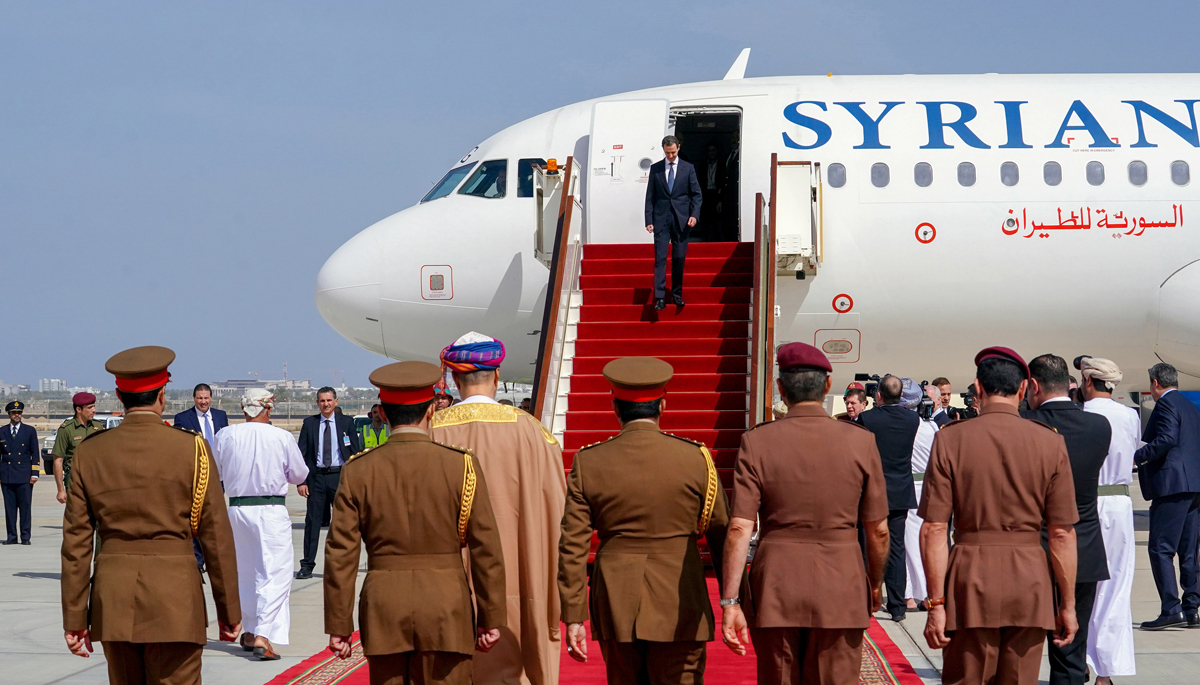According to confidential sources, Orient Net has learned that the Arab initiative on Syria will involve high-level contacts with the Assad regime, with the aim of overcoming the longstanding impasse that has plagued the Syrian situation for years. The sources spoke on condition of anonymity due to the sensitive nature of the information.
“Sources report that there is an Arab consensus to prevent Syria from being used as a playground for regional powers, particularly Iran and Turkey. However, there is uncertainty regarding the regime’s response to this initiative, as it is widely believed that the regime is closely tied to Iran,” the sources revealed.
Timing
According to sources from Orient Net, the earthquake disaster provided Arab countries with a unique opportunity to implement their own initiative. This was because the disaster helped to alleviate the embarrassment of certain countries, allowing them to publicly support the initiative.
Leading the charge in supporting the initiative are countries like Saudi Arabia and Egypt. While Cairo has expressed a strong interest in adopting and launching the initiative, Riyadh has been more hesitant in its approach, preferring to wait. However, with the opportunity to return to Damascus through the humanitarian aid gate, Riyadh now sees this as a favourable opportunity to support the initiative.
Explicit Call from Riyadh for Dialogue with Damascus: What’s Behind this Shift ?
Contrary to popular belief, the initiative was not a direct result of the earthquake. In fact, it was conceived at least five months prior, when Jordan received preliminary approval from Saudi Arabia to initiate it. Jordanian Foreign Minister Ayman Safadi first announced the initiative in September of last year, following consultations with the Americans.
In September, Orient Net revealed the features of this initiative, on the basis of which consensus was reached within the Arab League to postpone the return of the regime to it before the Arab summit in November 2022.
Information obtained by Orient Net at the time stated that the Arab plan for a solution in Syria was based on the implementation of Resolution 2254.
The initiative’s proposed actions include urging the regime to take concrete measures to combat drug smuggling, as well as to address the issue of the Iranian military presence in Syria. In exchange for limited Arab involvement, the regime is expected to provide financial and humanitarian assistance in accordance with the early recovery program. The regime must also take steps to build confidence with the opposition, such as releasing political prisoners, revealing the fate of the missing, and providing credible guarantees for the safe return of refugees and displaced persons to their homes. These measures will enable serious negotiations to begin with the opposition, leading to a comprehensive political solution based on UN Resolution 2254.
Objectives
While Oman wants to put an end to drug smuggling operations to its territory, remove Iranian militias from its borders, and return Syrian refugees as soon as possible, the rest of the countries believe that continuing to leave Syria, as well as Iraq, is an arena of Iranian-Turkish competition that is no longer acceptable.
The Gulf countries have started to distance themselves from the United States and adopt policies that differ from their American allies. This shift is due to their growing concerns about the US strategy in Syria, which seems to lack any clear horizon or plan for resolution. Moreover, Turkey has also become apprehensive about the negative impact of the US strategy and has taken steps to normalize relations with the Assad regime. This has prompted Arab countries to increase their involvement in the region in order to counterbalance these moves.
The primary area of agreement between these countries and Jordan is their shared goal of preventing further displacement of the Syrian people. With the number of people seeking to leave the country on the rise, and close to ten million Syrians already having left, the Arab countries are becoming increasingly aware of the long-term risks associated with the displacement of the predominantly Sunni Arab population.
Two-line plan
But to what extent can the regime accept a positive response to any initiative that includes Bashar’s resignation from office?
The regime cannot accept the mere discussion of this idea, as evidenced by the fact that the regime’s media deals with recent developments from two close angles. The first is the Arabs’ acquiescence to it, and the second is to open a new page between it and them while overcoming the past and acknowledging the regime’s victory.
According to Orient Net’s sources, Assad’s recent visits to Oman and the UAE were aimed at discussing the initiative’s contents and objectives. Preparations are being made for an official Arab delegation from several countries to visit Damascus to present the plan. However, if the regime rejects the initiative or fails to take it seriously, the Arab countries are prepared to take more decisive action and impose their will on Syria, similar to what occurred in Libya.
The Arab countries appear resolute in their efforts to bring about an end to the Syrian conflict, but the specific details and proposals for a solution remain somewhat vague. While the ideas put forward seem to be more aligned with the regime than the opposition, Orient’s sources stress that the Arab vision is balanced and recognizes the importance of gaining buy-in from all parties in order to ensure the success of the proposed solution. Whether this initiative can be successfully implemented remains to be seen.
This article was translated and edited by The Syrian Observer. The Syrian Observer has not verified the content of this story. Responsibility for the information and views set out in this article lies entirely with the author.


